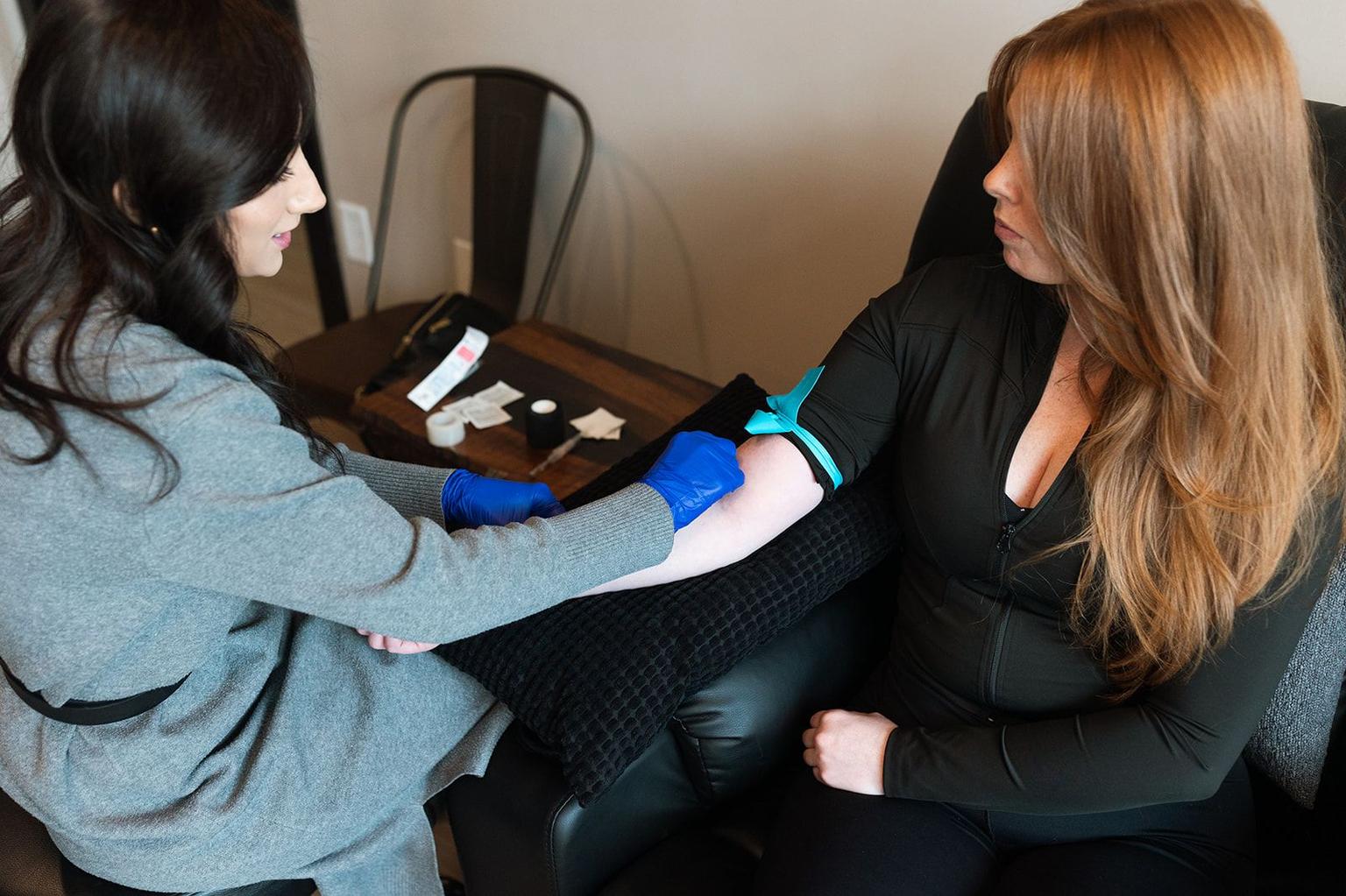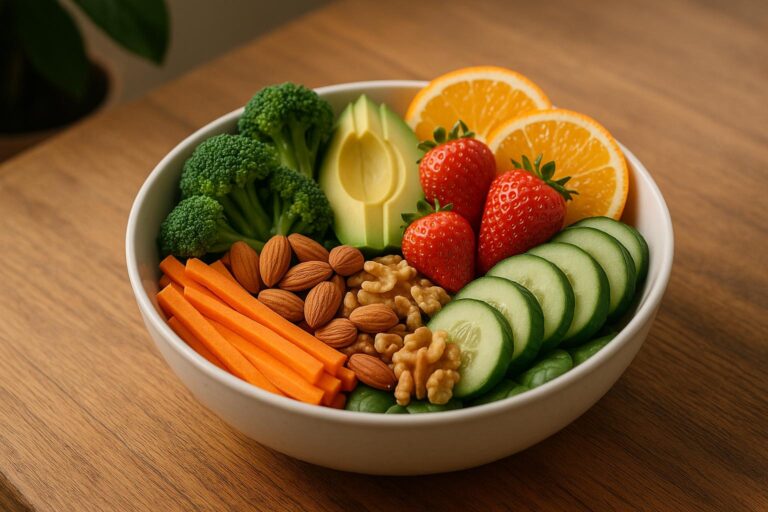Feeling overwhelmed by detox options? Here’s a breakdown to help you decide:
- IV Therapy delivers nutrients straight into your bloodstream for fast absorption and immediate effects. It’s ideal for quick hydration, fatigue recovery, and tailored nutrient delivery. Downsides? It’s costly ($125–$375 per session) and requires professional supervision.
- Oral Supplements are convenient and affordable, but absorption is limited (often below 50%), and results take longer to show.
- Dietary Detox Methods focus on natural, whole foods to support long-term health. While budget-friendly, they require significant lifestyle changes and take time to produce noticeable effects.
Quick Comparison
| Method | Key Benefits | Drawbacks |
|---|---|---|
| IV Therapy | Fast results, high absorption, personalized care | Expensive, clinic visits needed |
| Oral Supplements | Accessible, affordable, easy to use | Limited absorption, slower results |
| Dietary Detox | Natural approach, promotes healthier habits | Slower results, requires major diet changes |
Choosing the right method depends on your goals, budget, and lifestyle. IV therapy works for fast recovery, supplements for convenience, and dietary detox for gradual improvements.
How Does IV Therapy Help With Detox? @inhomeinfusion
1. IV Therapy
IV therapy delivers nutrients straight into your bloodstream, skipping the digestive process entirely. This approach allows your body to absorb nutrients right away, avoiding the delays and breakdowns that occur with oral supplements.
Absorption Efficiency
One of the standout benefits of IV therapy is its nearly perfect absorption rate – close to 100%. Compare that to oral supplements, which lose potency as they pass through stomach acid, digestive enzymes, and liver metabolism. For instance, when you take over a gram of vitamin C orally, your intestines can only absorb a small portion due to their limited transporter capacity. However, with IV therapy, vitamin C retains its full strength and can reach plasma levels up to 100 times higher than oral methods.
Speed of Results
An IV therapy session usually lasts between 20 minutes to an hour, and many patients experience noticeable improvements within just a few hours. Common benefits include relief from dehydration, fatigue, dizziness, or low blood pressure. Dr. Sam Torbati, co-chair of Emergency Medicine at Cedars-Sinai, highlights the quick impact of this treatment:
"For the most part, people report feeling better after these treatments because it’s a rapid way to receive hydration… If you’ve been sick or out drinking, you’re dehydrated – so hydrating will make you feel better."
This rapid delivery ensures nutrients start working almost immediately.
Customization
IV therapy can be tailored to meet your specific health goals and needs. For example, formulations may include antioxidants like glutathione to aid detoxification or amino acids and electrolytes to support muscle recovery and performance. This flexibility is especially helpful for those with chronic illnesses or digestive issues that hinder nutrient absorption. The effects typically last three to four days, but in some cases, they can extend up to two weeks.
Professional Supervision
Because these treatments are tailored to the individual, professional oversight is essential. Healthcare providers evaluate your health, determine the right nutrient combinations, and monitor your response to the therapy. At Kinnection Clinic, this hands-on approach is central to our care, ensuring each IV therapy session aligns perfectly with your health plan and personal needs.
2. Oral Supplements
Oral supplements are a popular and convenient way to support the body’s natural detox processes. Unlike IV therapy, these supplements have to pass through the digestive system before reaching the bloodstream, which can reduce their overall effectiveness. Let’s take a closer look at how this process affects their performance.
Absorption Efficiency
One of the biggest hurdles with oral supplements is how much of the nutrients your body actually absorbs. After ingestion, supplements must survive stomach acid, travel through the digestive tract, and pass through the liver before reaching the bloodstream. Studies suggest that this journey can reduce nutrient absorption by over 50%, with vitamin C absorption often peaking at just 20%. On average, the bioavailability of orally consumed vitamins is about 50% at best.
Speed of Results
Another downside is the time it takes for oral supplements to deliver noticeable results. Because they rely on the digestive process, the effects aren’t immediate. It can take days or even weeks of consistent use before you start to see any benefits. Patience and a steady routine are key when using these.
Customization
Customization is another consideration. While oral supplements come in a variety of formulations – covering everything from multivitamins to probiotics and amino acids – they often come in standardized doses. This lack of flexibility means you might need to combine multiple types of supplements to meet your specific detox goals. However, doing so can make your regimen more complicated and increase costs.
sbb-itb-d9e542d
3. Dietary Detox Methods
Dietary detox methods offer a natural way to support your body’s cleansing processes, focusing on whole foods, juices, and specific eating patterns. Unlike IV or oral supplement approaches, these rely on nourishing your body through food while cutting out processed items and potential irritants. The idea is simple: provide nutrients in their natural form while helping your system eliminate toxins.
Absorption Efficiency
The effectiveness of dietary detox largely depends on how well your digestive system works. Factors like stomach acidity, enzyme activity, and gut health all play a role in how nutrients are absorbed. Unlike IV therapy, which skips the digestive system entirely, dietary detox methods are subject to first-pass metabolism, meaning some nutrients are broken down before they can be fully utilized. Additionally, not all nutrients are absorbed equally – some compete for uptake, while others may be influenced by compounds in the foods you eat. High doses of nutrients taken orally also face limits due to the small intestine’s transport capacity.
Speed of Results
Dietary detox methods typically take a bit longer to show effects compared to IV therapy. For example, juice cleanses might boost energy and mental clarity within 1 to 7 days, with noticeable benefits like reduced bloating and clearer skin often appearing within the first three days. A 7-day cleanse may bring further improvements, such as better sleep and a general sense of well-being, along with temporary weight loss. For more thorough detoxification at the cellular level, programs lasting at least 21 days are usually required. In contrast, IV hydration therapy delivers nutrients directly into the bloodstream, often providing almost instant improvements in energy, mood, and focus.
Customization
One of the strengths of dietary detox is its flexibility. You can tailor your plan to include foods that support specific goals, like liver detoxification with leafy greens and cruciferous vegetables or anti-inflammatory benefits through certain spices and ingredients. However, this approach lacks the precision of IV therapy, where healthcare providers can adjust nutrient types and doses to meet your exact needs. While dietary detox offers a more natural route, it may not match the targeted accuracy of IV treatments or supplements.
Professional Supervision
Though many dietary detox methods can be done on your own, seeking professional advice ensures a safer and more effective experience, especially if you have health conditions or take medications. Clinics like Kinnection Clinic offer personalized dietary detox plans that can be integrated with other therapies, providing a well-rounded approach to your health and wellness goals. Professional guidance can help you navigate potential risks and optimize your detox journey.
Advantages and Disadvantages
Every detox method comes with its own perks and limitations, which can impact your decision depending on your health goals, budget, and daily habits. Knowing these trade-offs can help you pick the option that suits you best.
| Method | Advantages | Disadvantages |
|---|---|---|
| IV Therapy | • Delivers nutrients directly into the bloodstream, bypassing digestion • Quick results • Customizable nutrient blends • Administered by trained professionals |
• Expensive per session ($125–$375) • Usually not covered by insurance • Requires clinic visits and professional oversight |
| Oral Supplements | • Convenient and easy to access • More affordable than IV therapy • Can be taken at home • Available in a wide range of formulations |
• Relies on the digestive system for absorption • Slower to show benefits • Quality and effectiveness can vary across brands |
| Dietary Detox Methods | • Focuses on whole foods and natural ingredients • Budget-friendly and highly accessible • Can be done at home • Encourages healthier eating habits |
• Takes longer to see noticeable results • Requires significant changes to diet • Does not deliver precise nutrient doses |
The table provides a quick comparison, but there are some additional points to consider. For instance, IV therapy sessions typically cost between $125 and $375, with occasional group discounts available. Accessibility varies significantly – IV therapy requires visits to a clinic and professional administration, while oral supplements and dietary detox methods allow for at-home convenience. Keep in mind that IV therapy is often considered elective and, therefore, isn’t usually covered by insurance.
Each method has its strengths. IV therapy is ideal for those seeking fast results, while dietary detox methods promote gradual, lasting improvements by focusing on overall wellness. Oral supplements strike a balance, offering targeted support with moderate speed and convenience.
Choosing the right detox method depends on what matters most to you – whether it’s quick outcomes, affordability, or a sustainable lifestyle change. At Kinnection Clinic, healthcare providers are available to guide you through these options, helping you select the detox approach that aligns with your health goals and daily routine.
Conclusion
Deciding on the right detox method depends on understanding the benefits of each option and aligning them with your health goals and daily routine. IV therapy stands out for its ability to bypass digestion, delivering nutrients directly into the bloodstream for quick, efficient absorption. As Dr. Hazem Alrawas, MD, points out:
"By delivering nutrients directly into the bloodstream, it ensures optimal absorption and immediate effects, making it a powerful tool for liver detoxification and overall well-being".
While IV therapy provides fast and targeted results, oral supplements remain a more affordable choice, though their effectiveness can vary based on how well your body absorbs them. Dietary detox methods, on the other hand, focus on long-term health by promoting better eating habits, though they often take more time and dedication to show results.
IV therapy also offers a level of precision that dietary detox and oral supplements cannot match. Gentle Wellness Center highlights this advantage:
"IV therapy allows for the formulation of a precise cocktail of nutrients, ensuring that the body receives exactly what it needs, where it needs it".
For those seeking a more personalized detox plan, Kinnection Clinic provides tailored solutions, including Gonstead chiropractic care and specialized IV treatments like their Anti-Aging & Detox IV. These services aim to combat oxidative stress and support cellular health. As one satisfied patient, Kyle S., shared:
"Dr. Gunner and his clinic are top notch in professionalism and care. So thankful for their clinic, the chiropractic services and IV services!".
The clinic takes a comprehensive approach, addressing issues like chronic stress, dehydration, nutrient imbalances, and inflammation. Through detailed health evaluations, blood work, and customized wellness plans, they aim to tackle the root causes of these challenges.
Ultimately, the best detox method is the one that aligns with your individual needs, budget, and lifestyle. If you’re considering professional IV therapy as part of a personalized wellness plan, Kinnection Clinic offers the expertise and care to guide you on your detoxification journey.
FAQs
What health conditions or situations make IV therapy more effective than other detox methods?
IV therapy stands out as a practical solution when quick hydration, nutrient replenishment, or detoxification is needed. It’s especially helpful for tackling dehydration, addressing nutrient gaps, and giving the immune system a boost. For individuals dealing with digestive challenges or absorption issues, IV therapy offers a unique advantage by skipping the digestive process entirely. Instead, it delivers nutrients directly into the bloodstream, ensuring faster and more efficient absorption.
This approach is also highly effective for those recovering from strenuous physical activity, illnesses, or exposure to harmful substances, like during alcohol or drug detox. By providing instant hydration and targeted nutrients, IV therapy plays a key role in supporting recovery and enhancing overall well-being.
What are the costs and benefits of IV therapy, and how accessible is it?
IV therapy sessions in the United States typically cost between $80 and $200, depending on factors like the type of infusion and the location. Many clinics now offer mobile services, bringing treatments straight to your home or workplace. This added convenience makes it a practical choice for those with packed schedules.
Though the price may seem steep at first glance, the potential perks are worth considering. These include quick nutrient absorption, better hydration, immune system support, and speedier recovery times. These benefits can play a role in maintaining long-term wellness and might even help cut down on healthcare expenses by preventing illness and boosting overall health. Incorporating IV therapy into a customized health plan, like those available at Kinnection Clinic, could support your journey toward better health and a more vibrant life.
Can IV therapy be used alongside dietary detox methods or supplements for better results?
Yes, IV therapy can work alongside dietary detox plans or oral supplements to support your body’s natural detox process. By delivering nutrients straight into the bloodstream, IV therapy ensures near-total absorption for a quick and noticeable boost. Meanwhile, supplements and a detox-focused diet provide consistent, long-term support.
This pairing can help maximize nutrient intake, bolster your immune system, and enhance the overall effectiveness of your detox efforts – especially when combined with a well-rounded, nutrient-dense diet. Be sure to consult a healthcare professional to ensure this approach suits your specific health needs.



